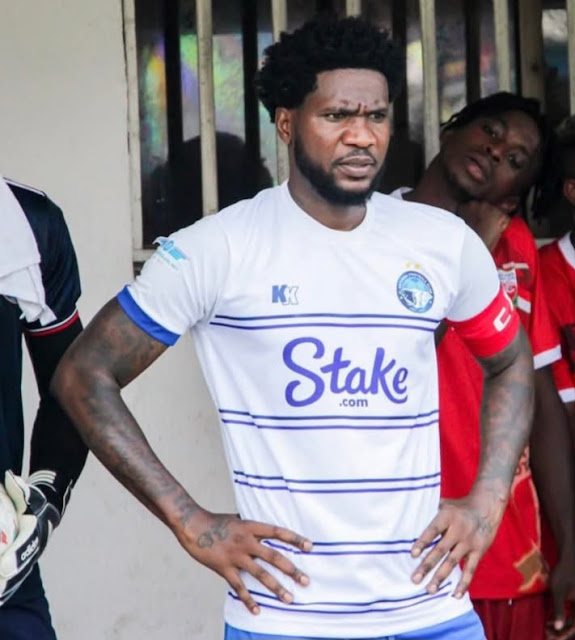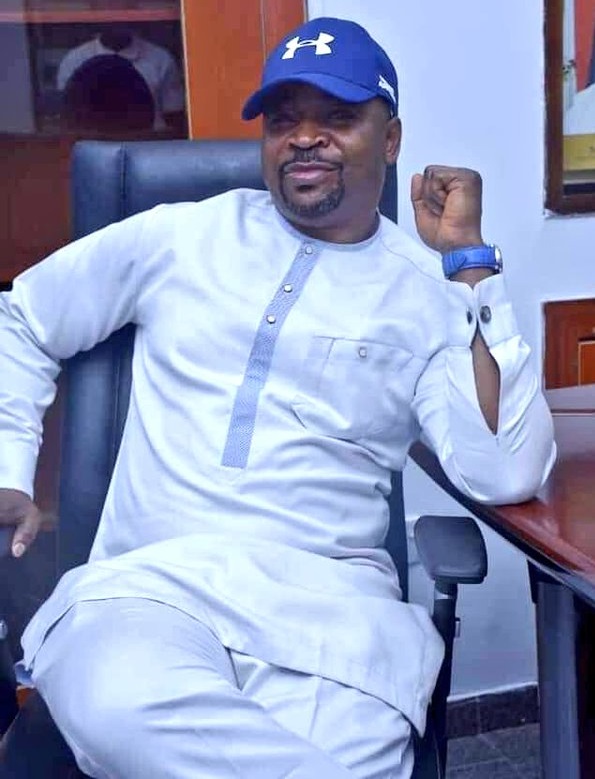In a recent development that has sparked widespread discussion across Nigerian sports circles, former Super Eagles forward Brown Ideye issued a detailed statement to clarify remarks he made on social media platform X regarding the financial hardships faced by retired footballers. The 2013 Africa Cup of Nations winner had initially advised active players to save for their retirement, a comment that was in response to an ongoing online debate about financial mismanagement among professional athletes. However, a subsequent remark suggesting that retired players who fail to save should face imprisonment went viral, drawing significant attention and criticism. In response to the backlash, Ideye released a comprehensive statement to set the record straight, emphasizing his empathy for retired players and advocating for support systems to help athletes transition into life after football. This episode has brought to the forefront critical issues surrounding financial literacy, post-career planning, and the societal treatment of Nigeria’s football heroes.
The Genesis of the Controversy
The controversy began with an emotional outburst by former Super Eagles defender Taribo West during the burial of late goalkeeper Peter Rufai. West, a former star who played for top European clubs like Inter Milan, used the occasion to express his frustration at what he described as the neglect of Nigerian football heroes by the Nigeria Football Federation (NFF) and the Lagos State Government. His comments sparked a broader online debate about the financial struggles faced by retired athletes, particularly those who fail to invest their earnings wisely during their active years. The discussion highlighted a recurring issue in Nigerian sports: the lack of adequate support systems for athletes transitioning out of their careers, leaving many to face financial hardship and obscurity after retirement.
It was against this backdrop that Brown Ideye, who recently announced his retirement from international football, took to X to share his perspective. In his initial post, Ideye offered practical advice to active players, urging them to prioritize financial planning from the outset of their careers. “Footballers, start saving for your future from day one. No matter how small your salary is, put something aside for your retirement,” he wrote. He further emphasized the importance of having a reliable support system, including good friends, mentors, and a trustworthy partner, to navigate the challenges of life after football. His advice was rooted in the recognition that a football career, while potentially lucrative, is often short-lived, and players must prepare for the inevitable end of their playing days.
However, the tone of the conversation shifted when Ideye responded to a follower’s comment in a manner that many interpreted as harsh. In reply to a user who appeared to echo his sentiments about financial responsibility, Ideye wrote, “They should be jailed for life if, after they retired from playing, they can’t feed themselves.” This statement, though likely intended as hyperbole, was met with swift backlash as it spread across social media and was picked up by various news outlets. The remark was widely perceived as insensitive, particularly given the systemic challenges that retired footballers face, including limited access to financial education, poor management by sports bodies, and societal pressures that often lead to financial mismanagement.
Ideye’s Clarification: A Call for Empathy and Support
As the controversy gained traction, Brown Ideye moved quickly to address the misinterpretation of his words. In a detailed statement titled “Setting the Record Straight,” he sought to clarify his position and distance himself from the punitive sentiment attributed to him. The statement, released on X and widely circulated by media outlets, underscored his commitment to supporting both active and retired athletes and condemned the misrepresentation of his views.
“My attention has been drawn to recent media articles by several news outlets falsely attributing comments to me about retired footballers who end up broke needing to be jailed,” Ideye wrote. “Let me be clear: These statements are completely false and misrepresent my views.” He went on to emphasize his personal understanding of the challenges faced by athletes, drawing from his own journey as a professional footballer who rose from humble beginnings. “As a former professional player myself who comes from humble beginnings, I’ve always believed in support for active/former football players and athletes in general, recognizing the unique challenges they face during their active days and post-career,” he added.
Ideye’s clarification was not merely a defense of his character but a broader call for empathy and constructive solutions to address the plight of retired athletes. He explicitly rejected the idea of punitive measures against those facing financial struggles, stating, “I would never suggest punitive action towards anyone who struggles financially or otherwise. Instead, I advocate for focus to be on offering all necessary support, resources, trainings, and mentorship programmes to help players/athletes navigate the transition from sports to life after the game.” This stance reflects a deep understanding of the systemic issues that contribute to financial hardship among retired players, including a lack of financial literacy, inadequate support from sports governing bodies, and the absence of structured post-career programs.
The former striker also expressed frustration at the media’s role in amplifying the controversy, accusing certain outlets of publishing misleading reports that distorted his views. “This article is misleading of my person and character, and I strongly condemn it,” he wrote. “I urge the public to disregard it and ask for the media to desist from false claims and publications as such stories only bring disrepute and sow seeds of discord.” His statement highlights the broader issue of media sensationalism, which can exacerbate misunderstandings and fuel division within the sports community.
The Broader Context: Financial Struggles of Retired Athletes
The controversy surrounding Ideye’s comments has brought renewed attention to the challenges faced by retired footballers in Nigeria. The emotional outburst by Taribo West at Peter Rufai’s burial served as a poignant reminder of the neglect that many former players experience after their careers end. Despite their contributions to Nigerian football, including iconic moments like the 1996 Olympic gold medal and the 2013 Africa Cup of Nations victory, many retired players struggle to make ends meet, often due to a combination of poor financial planning, exploitation by unscrupulous agents, and a lack of institutional support.
In Nigeria, footballers often face immense pressure to support extended families, communities, and even strangers during their active years. The cultural expectation to “give back” can lead to significant financial strain, leaving little room for savings or investments. Additionally, many players lack access to financial education or trustworthy advisors who can guide them in managing their earnings. The absence of structured retirement planning programs within the Nigeria Football Federation further exacerbates these challenges, leaving players vulnerable to financial ruin once their careers end.
The global sports industry offers valuable lessons for Nigeria. In countries like the United Kingdom and the United States, sports organizations such as the Professional Footballers’ Association (PFA) and the National Basketball Players Association (NBPA) provide comprehensive support for athletes, including financial literacy programs, career transition workshops, and mental health services. These initiatives help players prepare for life after sports, ensuring that they can leverage their skills and experiences in new ventures. Nigeria, however, lags behind in this regard, with little to no institutional support for retired athletes.
The case of Peter Rufai, whose death sparked the current debate, is particularly illustrative. As one of Nigeria’s most celebrated goalkeepers, Rufai represented the country with distinction, yet his later years were reportedly marked by financial and personal struggles. Taribo West’s comments at Rufai’s burial highlighted the sense of abandonment felt by many former players, who dedicate their lives to the sport only to be forgotten by the institutions and society they served. This sentiment resonates with many retired footballers, who feel that their contributions to Nigeria’s sporting legacy are undervalued.
Ideye’s Advocacy: A Path Forward
Brown Ideye’s clarification statement goes beyond addressing the controversy; it offers a roadmap for addressing the systemic issues facing retired athletes. By advocating for “support, resources, trainings, and mentorship programmes,” Ideye is calling for a paradigm shift in how Nigeria treats its sports heroes. His emphasis on empathy and solutions reflects a deep understanding of the challenges athletes face and a commitment to fostering positive change.
One of the key areas Ideye highlights is the need for financial literacy programs for active players. Teaching athletes how to manage their earnings, invest wisely, and plan for the future can significantly reduce the risk of financial hardship after retirement. These programs should be integrated into the operations of the Nigeria Football Federation and other sports bodies, ensuring that players receive guidance from the outset of their careers. Partnerships with financial institutions, NGOs, and private sector organizations can help deliver these programs effectively, providing players with access to expert advice and resources.
Mentorship is another critical component of Ideye’s proposed solution. Retired players, who have navigated the challenges of post-career life, can serve as mentors to active athletes, sharing their experiences and offering guidance on financial planning, career transitions, and personal development. Establishing formal mentorship programs within the NFF or through independent organizations could help bridge the gap between active and retired players, fostering a sense of community and support.
Career transition programs are also essential for preparing athletes for life after sports. Many players struggle to find their footing in new industries after retirement, particularly if they have focused solely on their athletic careers. Providing training in areas such as coaching, sports management, entrepreneurship, or vocational skills can open new pathways for retired players, enabling them to remain productive contributors to society. These programs should be tailored to the unique needs of athletes, taking into account their skills, interests, and experiences.
Ideye’s call for empathy is particularly significant in a society where financial struggles are often stigmatized. Rather than blaming retired players for their hardships, Nigeria must adopt a more compassionate approach, recognizing the systemic factors that contribute to their challenges. This includes addressing the role of the NFF and state governments in supporting retired athletes, whether through pensions, healthcare benefits, or recognition programs that honor their contributions.
The Role of the Nigeria Football Federation and Government
The Nigeria Football Federation has a critical role to play in addressing the plight of retired players. As the governing body for football in Nigeria, the NFF must take responsibility for ensuring that players are supported throughout their careers and beyond. This includes implementing policies that promote financial literacy, provide career transition support, and establish welfare programs for retired athletes. The NFF should also work to ensure that players receive fair compensation during their active years, reducing the financial pressures that lead to mismanagement.
State governments, particularly in football-loving regions like Lagos, can also contribute to these efforts. Governor Babajide Sanwo-Olu’s administration, for example, has shown a commitment to sports development through initiatives like the Lagos State Sports Commission. Expanding these initiatives to include support for retired athletes could make a significant difference, providing resources, training, and opportunities for former players to thrive.
The federal government, through the Ministry of Sports Development, should also prioritize the welfare of athletes as part of its broader agenda. Establishing a national sports retirement fund, similar to pension schemes for civil servants, could provide a safety net for retired players, ensuring that they have access to financial support in their later years. Such a fund could be financed through a combination of government contributions, private sector partnerships, and revenue from sports events.
The Media’s Responsibility
Ideye’s frustration with the media’s role in the controversy underscores the need for responsible journalism in sports reporting. Sensationalized headlines and misrepresentations can distort public discourse, fueling division and misunderstanding. Media outlets must prioritize accuracy and context, ensuring that athletes’ statements are reported fairly and in their entirety. By doing so, they can contribute to constructive conversations about the challenges facing retired players and the solutions needed to address them.
A Call for Unity and Action
The controversy surrounding Brown Ideye’s comments has sparked an important conversation about the state of Nigerian football and the treatment of its heroes. While the initial misunderstanding was unfortunate, it has provided an opportunity to reflect on the systemic issues that contribute to financial hardship among retired athletes. Ideye’s clarification statement serves as a rallying cry for unity and action, urging stakeholders to work together to support players throughout their careers and beyond.
The Nigerian sports community—players, coaches, administrators, fans, and policymakers—must seize this moment to address the challenges facing retired athletes. By investing in financial literacy, mentorship, and career transition programs, Nigeria can ensure that its football heroes are celebrated not only for their achievements on the field but also for their contributions to society after retirement. This requires a collective effort, with the NFF, government, private sector, and civil society all playing a role in creating a more supportive environment for athletes.
Conclusion: A New Chapter for Nigerian Football
Brown Ideye’s journey from a controversial remark to a heartfelt clarification reflects his commitment to the welfare of Nigerian athletes. His call for empathy, support, and solutions resonates with the broader aspirations of a nation that values its sports heroes but has often failed to provide them with the support they need. The challenges facing retired footballers are not insurmountable, but they require bold, sustained, and collaborative action.
As Nigeria looks to the future, it must prioritize the welfare of its athletes, ensuring that they are equipped to thrive both during and after their careers. By implementing the reforms advocated by Ideye—financial literacy, mentorship, career transition programs, and institutional support—Nigeria can create a sports ecosystem that honors its heroes and empowers them to lead fulfilling lives. The controversy sparked by Ideye’s comments may have been a moment of misunderstanding, but it has also opened the door to a new chapter in Nigerian football—one defined by compassion, opportunity, and a shared commitment to excellence.






